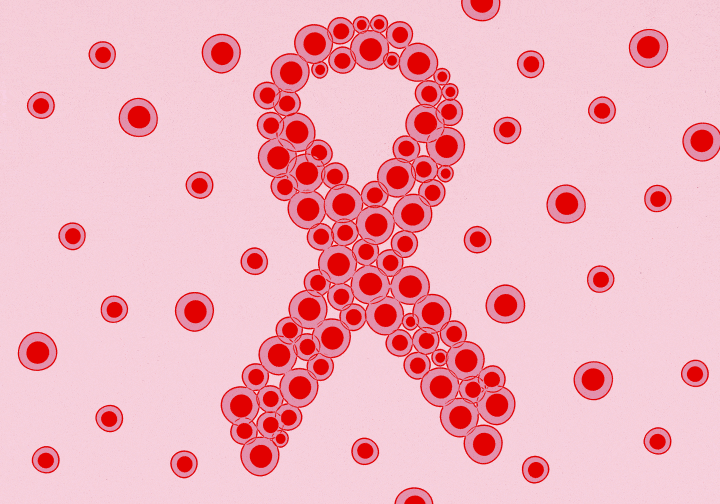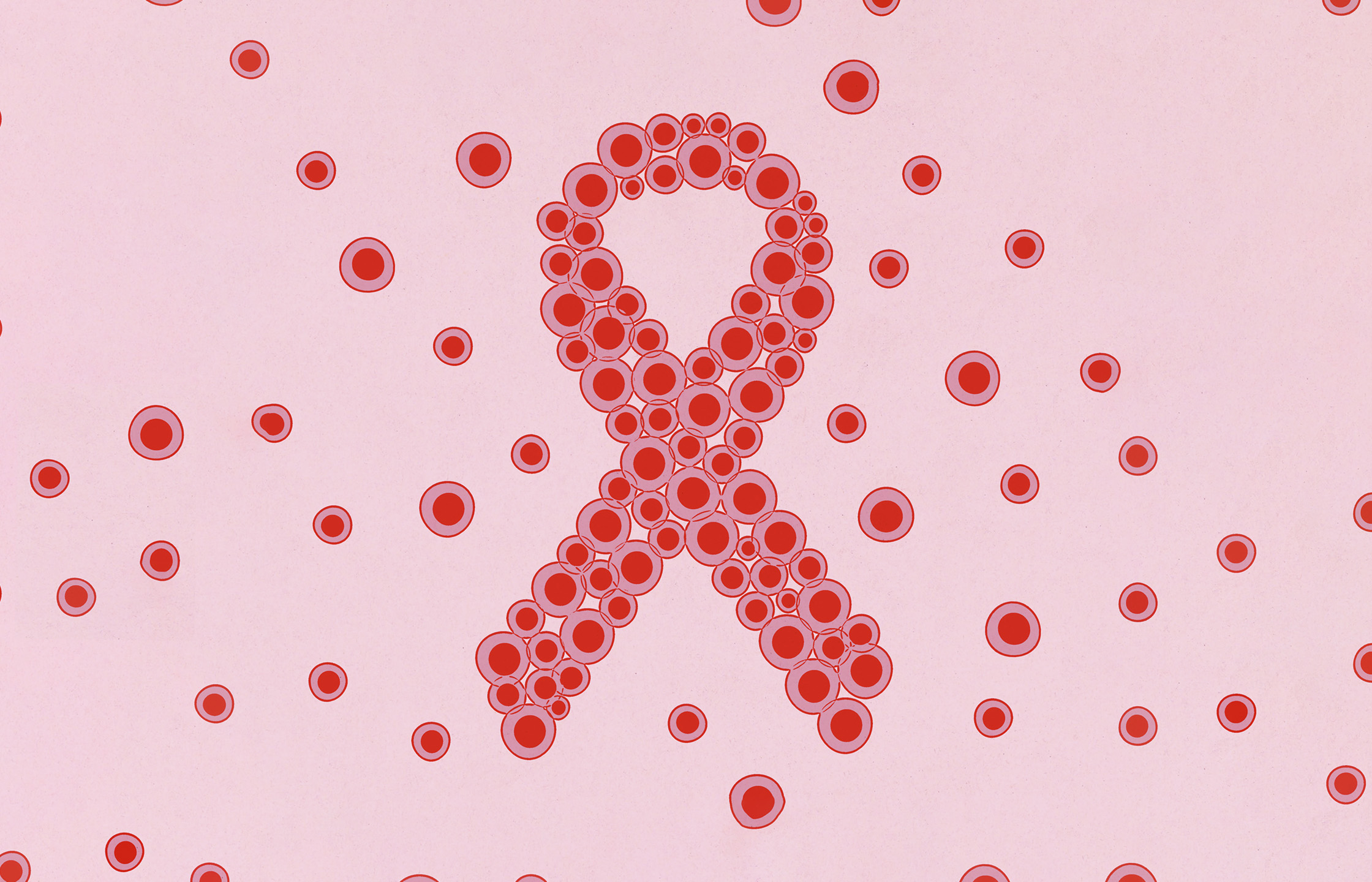A Cure for HIV?
An AIDS researcher develops a novel approach for HIV-positive cancer patients
By Janette Neuwahl Tannen
Illustration by Dan Page

Illustration by Dan Page
S
avita Pahwa, M.D., director of UM’s Center for AIDS Research and a professor of microbiology and immunology, was part of a national research team that investigated the use of transplanted umbilical cord blood to achieve a potential cure of a woman with HIV/AIDS. She was only the third patient and the first woman with HIV/AIDS to reach this status.
In February, the investigators unveiled their research findings that showed no detectable levels of HIV in the patient who had not taken any anti-retroviral drugs for 14 months, which many consider a cure. The patient, a woman with acute myeloid leukemia, needed a stem cell transplant to treat her cancer, and was enrolled in a clinical trial designed to deliver cord blood stem cells carrying a rare mutation that made them resistant to infection with HIV. Dr. Pahwa, who is an immunologist, was a member of the team that designed the original protocol to investigate whether stem cells that were required for the cancer treatment could also rid a patient of HIV.
HIV is notorious in that it tends to rebound if anti-HIV drugs are discontinued, even after years of being kept under control. In this patient, four years after receiving the cord blood stem cell transplant, she opted to discontinue taking her anti-retroviral drugs. Now, after more than a year without the drugs, the team confirmed that there was no detectable HIV in the woman. Pahwa lab members Suresh Pallikkuth, Ph.D., and Margaret Roach also helped demonstrate that the patient no longer had hallmark signs of HIV, such as inflammation and immune activation. The study was led by Dr. Yvonne Bryson of the University of California, Los Angeles, and was developed by the International Maternal Pediatric Adolescent AIDS Clinical Trial Network, funded by the National Institutes of Health.
While she is excited by the results, Dr. Pahwa said the treatment is limited to HIV-infected people with cancers that require stem cell transplantation, so there are no guarantees that it will be successful for HIV eradication in everyone. Also, stem cell transplants are challenging because they require finding the right match between a donor who has the stem cells that resist HIV, and a patient whose body is able to receive these cells.
“This approach does not offer a widespread means of curing HIV because it’s a very restricted scenario where you have cancer and HIV, but it provides a road map toward a cure and is an important step forward in our search for permanently eradicating HIV,” she said. “These unique cases can teach us about strategies that HIV uses to hide and escape from our immune system and powerful drugs.”
While stem cells found in bone marrow have been used twice before to successfully achieve an HIV cure in two men, this method used cells found in umbilical cord blood. Since umbilical cord stem cells are easier to match with patients, this treatment may be easier to utilize in the future, Dr. Pahwa said. ![]()



